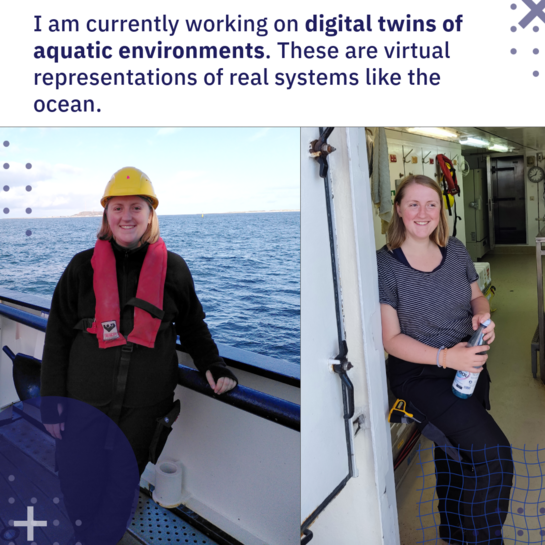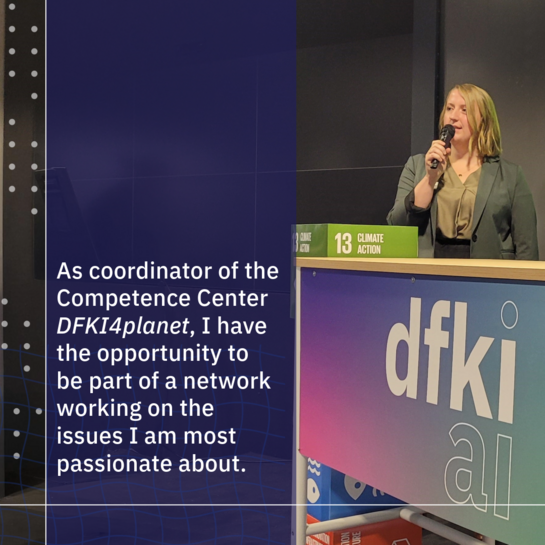

Please introduce yourself briefly and describe your current role at DFKI
I am Janina Schneider and I have been working as a scientist at DFKI for three years. I studied physics, specialising in environmental physics. I came to AI through my master's thesis. Today, I am mainly involved in processing and analysing environmental data - from directly measured marine data to satellite data - and researching the extent to which AI can be usefully applied there. I also coordinate the DFKI Competence Center "AI for Environment and Sustainability", DFKI4planet for short.
In which of the 29 research departments do you work at DFKI?
I work in the Oldenburg research department Marine Perception at DFKI Niedersachsen. Among other things, our focus is on the development of intelligent sensors and systems and the AI-supported analysis of multisensory data. We look not only at marine ecosystems, but also at (aquatic) ecosystems in general and other areas of sustainability, such as resource efficiency and material savings in small and medium-sized companies. Our goal is to find AI solutions for optimised monitoring in these areas and to promote sustainable development.
What are you working on at the moment, or in other words, what are your plans for saving the world?
I am currently working on digital twins of aquatic environments. These are virtual representations of real systems that enable us to better understand complex relationships, to monitor changes and to play through potential scenarios. For example, the current plant growth in a lake can be automatically recorded, monitored and even predicted. This technology can therefore help us to make more informed decisions and thus contribute to protecting our environment and natural habitats.

What are your strengths and what has been your greatest success or favourite experience so far?
One of my strengths is taking complex issues and making them accessible to different audiences. I've had several opportunities to do this recently: For example, a video project on the United Nations Sustainable Development Goals, Girls' Day, a panel discussion on AI and sustainability and finally the Pub Science event with my topic "Digital twins and what they can tell us about our oceans". These experiences were not only fun but also provided great opportunities to engage with a wider audience.
What do you enjoy most about your job at DFKI? What inspires and fascinates you?
For me, it is the interdisciplinary collaboration with my colleagues that makes my job so special. Not only do I learn a lot, but I can also contribute my enthusiasm for the environment and my skills. With DFKI4planet, I also have the opportunity to be part of a network working on the issues I am most passionate about.
If you weren't a scientist, what career would you have pursued?
I would have liked to do something with the media. At least that's what I thought for a while. Today, what's most important to me is to have a meaningful job. Of course, this wish can be fulfilled in many areas - for example, in research or research-related work.
Back to #WEatDFKI - Staffel 2